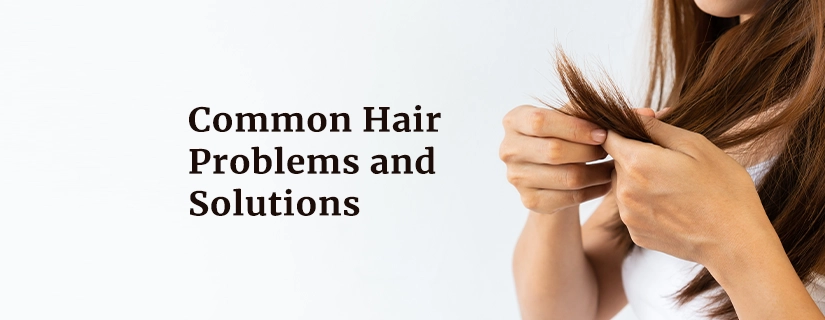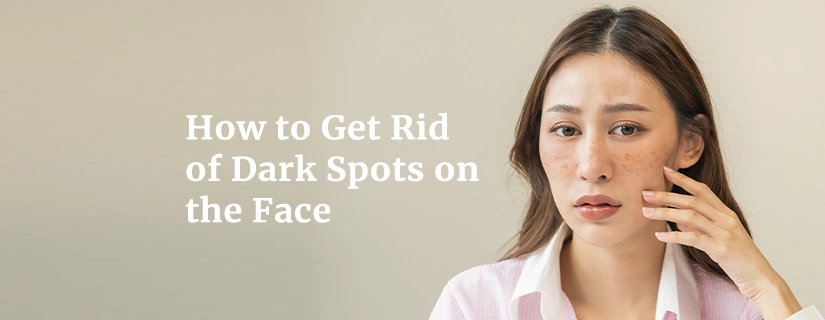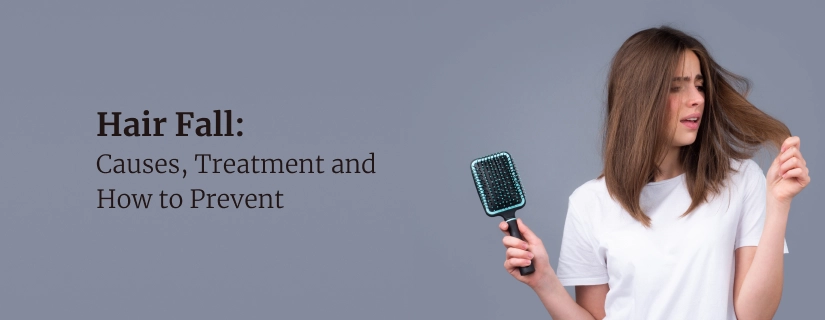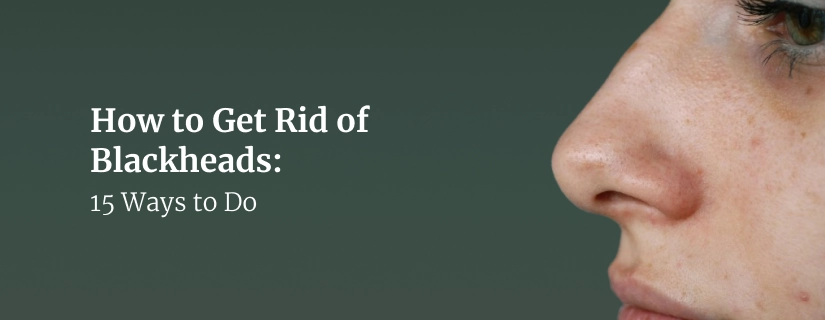-
Doctors
-
Specialities & Treatments
Centre of Excellence
Specialties
Treatments and Procedures
Hospitals & Directions HyderabadCARE Hospitals, Banjara Hills CARE Outpatient Centre, Banjara Hills CARE Hospitals, HITEC City CARE Hospitals, Nampally Gurunanak CARE Hospitals, Musheerabad CARE Hospitals Outpatient Centre, HITEC City CARE Hospitals, Malakpet
HyderabadCARE Hospitals, Banjara Hills CARE Outpatient Centre, Banjara Hills CARE Hospitals, HITEC City CARE Hospitals, Nampally Gurunanak CARE Hospitals, Musheerabad CARE Hospitals Outpatient Centre, HITEC City CARE Hospitals, Malakpet Raipur
Raipur
 Bhubaneswar
Bhubaneswar Visakhapatnam
Visakhapatnam
 Nagpur
Nagpur
 Indore
Indore
 Chh. Sambhajinagar
Chh. SambhajinagarClinics & Medical Centers
Book an AppointmentContact Us
Online Lab Reports
Book an Appointment
Consult Super-Specialist Doctors at CARE Hospitals
Tips to Prevent Hair Fall in Monsoon
Updated on 2 November 2022
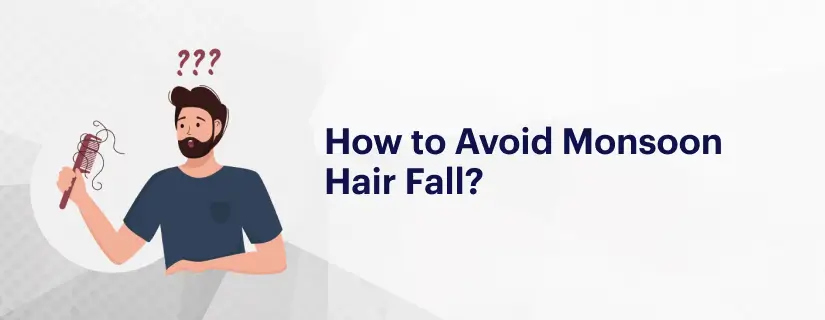
Hairfall is a common problem faced by many individuals. Both young and old witness hair fall at some point in their lives. Especially during monsoons, hair fall becomes a common cause of anxiety for the majority.
During monsoon, as the humidity level is high and the scalp retains oil, making one shampoo more often. This makes the scalp dry and leads to dandruff, which causes severe hair fall. Another reason is that excessive moisture in the scalp causes fungal infection, which weakens the hair roots and increases hair fall. The first rain is acidic and the hair retains chemicals, which damage hair. The use of a dryer to dry hair can damage hair. Chronic gut conditions can lead to deficiencies of vitamins and minerals that are required for good hair health.
Normally losing 50-60 hairs every day is acceptable. But when the count goes above 200-250, it becomes a matter of concern. The hair absorbs hydrogen due to moisture present in the air, resulting in frizziness and breakage. It takes time to dry the hair and the wetness inside the scalp loosens the strength of the hair follicle. Hair becomes dull and lifeless and tends to tangle a lot. The growth of bacteria and fungi on the scalp can lead to an itchy scalp. All such reasons lead to hair fall.
Major Causes of Hair Fall in Monsoon
Here are the major causes of hair fall in monsoon season:
- Humidity: The high levels of humidity during the monsoon can make the scalp excessively sweaty, leading to increased oil production. This can clog the hair follicles and weaken the roots, resulting in hair fall.
- Fungal Infections: Fungal infections like dandruff and ringworm are common during the monsoon due to damp and humid conditions. These infections can cause itching, flakiness, and inflammation, leading to hair fall.
- Weakened Hair Roots: The excess moisture in the air can weaken the hair roots, making them more susceptible to breakage. This can cause hair fall and thinning of the hair.
- Increased Hair Shedding: During the monsoon, the hair follicles go through a natural shedding phase. However, due to the moisture and humidity, this shedding may be more pronounced, resulting in increased hair fall.
- Poor Diet: During the monsoon, people often crave fried and unhealthy food, neglecting essential nutrients required for healthy hair growth. A lack of proper nutrition can weaken the hair follicles and lead to hair fall.
- Rainwater: Rainwater is often acidic and contains pollutants, which can negatively impact the health of the scalp and hair. It can make the hair dry, brittle, and prone to breakage.
- Excessive Styling: In an attempt to manage frizzy hair during the monsoon, people often resort to excessive heat styling and chemical treatments. These practices can damage the hair shaft, leading to hair fall.
- Stress: The change in weather and disruptions caused by heavy rainfall can contribute to increased stress levels. Stress is a known factor for hair fall, as it disrupts the hair growth cycle.
- Lack of Proper Hair Care: During the monsoon, it is crucial to maintain proper hair care hygiene. However, due to the gloomy weather, people may neglect regular washing, drying, and conditioning, leading to scalp issues and hair fall.
- Weakened Immunity: The monsoon season brings with it a higher risk of viral and bacterial infections. Illnesses can weaken the immune system, affecting overall hair health and causing hair fall.
Tips to Prevent Further Hair Fall
The seasonal change brings all the discomfort. However, one can follow a few simple tips to prevent hair fall
- Dry your hair properly: Use a clean and dry cloth to absorb the water from your hair immediately after a head bath. Gently twist the hair from below by covering them with the cloth. Using a hairdryer causes further damage to the hair so let them dry naturally. Do not tie them for a long time.
- Choose the right shampoo and don’t forget to use a conditioner: Do not use excessive chemical-based shampoo to clean your hair. Choose the right kind of shampoo that washes your hair gently. Dandruff and frizzy hair can be taken care of by selecting a proper shampoo. An anti-bacterial shampoo could be of help in this case. Conditioner makes the hair smooth and prevents them from tangling and breaking.
- Massage your head with warm oil regularly: Nourishment of roots is important. When you massage your head with warm oil, it boosts circulation and the hair becomes shinier. Let the oil stay on your hair for a few hours or overnight and then wash them gently with shampoo. Use fenugreek seeds together with coconut oil, heat it and apply it when it is lukewarm. Use any oil of your choice, especially the one that goes well with your skin. Massaging oil on the scalp is suggested twice a week.
- Dietary care: A healthy diet can strengthen and lengthen your hair. Drinking a lot of water is good. Intake of excessive caffeine should be avoided. Eat a balanced meal rich in potassium, iron and vitamin E. Eat fruits and vegetables and avoid food that is low in nutritional value.
- Cover your head when you have to go out while it rains: This will save you from a lot of trouble. Rainwater is acidic and full of pollutants capable of damaging hair roots. Cover your head with a cap or a scarf or use an umbrella before stepping out in the rain. If possible, wash your hair immediately after you go back home. This will help in washing off the chemicals quickly instead of letting them stay to bring stickiness and collect moisture.
- Avoid hair treatments: All the hair treatments like colouring, perming, permanent straightening etc. use many chemicals. Monsoon is not the perfect time to try them out. Hair gels and sprays also make them sticky and leave less amount of air passing through your scalp. Moreover, hair moisturisers keep the hair hydrated. Use them to offer a shield to your hair from dust, heat, and excessive humidity. By using them your hair may look bulkier and shinier than before.
Home Remedies To Prevent Hairfall
You can also try out the following hair care tips and remedies which are easily available at home,
- Use lemon juice to remove oil from your scalp. This can smoothly clean the hair without breaking them. Curd is also good and works as a conditioner. Lemon helps to reduce dandruff on your scalp.
- Apply aloe vera gel on your scalp two hours before you wash the hair. Aloe vera can be mixed with your hair oil as well.
- Mashed banana and honey reduce the dryness. Apply a mixture of both an hour before washing your hair to bring it softness. A mixture of mango and mint can also add shine to your hair.
- Fenugreek seeds are good for hair. A combination of fenugreek seeds, mint, Multani Mitti, and lemon juice can do wonders for your hair. Use half a cup of blended fenugreek seeds, half a lemon, 8-10 mint leaves, and one tablespoon of “Multani Mitti” together. Apply this paste to your head and let it stay for 2-3 hours before you wash.
- There are different ayurvedic hair oils available in the market. You can choose any of them if that suits you well. The oil can be homemade using various testified herbs as per traditional norms. Amla, almonds, and Bhringraj are commonly used natural ingredients while making oils.
Shampoos with natural extracts are useful and do not use products with paraben and sulphates. Let the hair dry first before you comb them. Sharing your comb with anybody is not recommended. Use a wide-toothed comb to untangle your hair. Do it gently and don’t make harsh movements while combing.
The hair care products must suit you well. If the damage is noticeable even on normal days, apparently it will increase the quantum during the monsoon. It is normal to get tensed when you see a lot of hair falling around you on a day-to-day basis. If you face severe hair fall despite, or taking the necessary care, the hair fall is not decreasing, you can consult a trichologist or dermatologist at CARE Hospitals.

ENQUIRY FORM
SELECT CATEGORIES
-
Neurosciences (16)
-
Neurology (38)
-
Neurosurgery (14)
-
Orthopaedics (48)
-
Oncology (33)
-
Obstetrics and gynecology (52)
-
Pulmonology (23)
-
Urology (20)
-
Nephrology (13)
-
Psychiatry (7)
-
Dietetics and Nutrition (111)
-
General Medicine (63)
-
Cardiac Sciences (32)
-
Vascular & Endovascular Surgery and Interventional Radiology (15)
-
Gastroenterology (46)
-
Endocrinology (23)
-
Plastic Surgery (10)
-
Critical Care Medicine (5)
-
COVID-19 (16)
-
Dermatology (16)
-
Emergency Care (1)
-
Ophthalmology (4)
-
Pediatrics (14)
-
Laparoscopic and Bariatric Surgery (8)
-
ENT (15)
-
Kidney Transplant (1)
-
Liver Transplantation and Hepatobiliary Surgery (5)
-
General Surgery (3)
-
Internal Medicine (5)
-
Medicine Information
Skin Problems in Winter and How to Deal with Them
Common Skin Infections and How to Prevent Them
YOU MAY ALSO LIKE
RECENT BLOGS
-

Rotablation Angioplasty: Benefits, Treatments, And Recovery Time
6 February 2026
Read More
-

What Is The Difference Between IUI and IVF?
6 February 2026
Read More
-

Pulmonary Stenosis: Symptoms, Causes, Diagnosis and Treatments
6 February 2026
Read More
-

Difference between Angioplasty and Angiography
6 February 2026
Read More
-
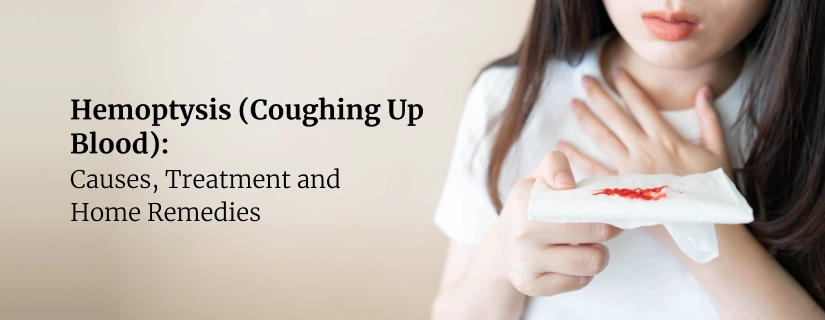
Hemoptysis (Coughing Up Blood): Causes, Treatment and Home Remedies
2 February 2026
Read More
-

Leg Weakness: Causes, Symptoms and Treatment
9 January 2026
Read More
-

Back Pain After C-Section: Causes and Home Remedies
9 January 2026
Read More
-

Belly Button Pain (Periumbilical Pain): Causes, Treatment and When to See a Doctor
9 January 2026
Read More
Have a Question?
If you cannot find answers to your queries, please fill out the enquiry form or call the number below. We will contact you shortly.


